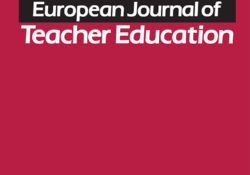tandfonline.com har udgivet en rapport under søgningen “Teacher Education Mathematics”: ABSTRACT ABSTRACT Background Developing collective professional capacities in schools is important for school improvement, and principals can initiate such developments. That is, by initiating and leading professional group discussions on teaching and learning, principals can influence teaching practices and, thereby, indirectly affect student outcomes and school improvement. However, research indicates that leading such discussions in communities of professionals can be a challenge for principals. Purpose The aim of this article is to explore and yield insight into how a conceptual model (the LPGD model) can support principals in guiding professional group discussions on school development and change. Method The study adopts a qualitative observational approach. Data were collected through observations of a pilot use of the model by principals who… Continue Reading →
Like this:
Like Loading...

tandfonline.com har udgivet en rapport under søgningen “Teacher Education Mathematics”: ABSTRACT ABSTRACT This study explored feedback conveyed in nine triadic conferences in teacher education practicum. The supportive character of formative feedback was explored in detail by employing a framework that combines two conceptualisations of feedback.The study depicted feedback directed backwards, upwards or forward and focusing performance, strategies, self-regulation or personal characteristics inside a framework of self-regulated learning. Findings show the teacher student to be more active in feed up, feed back and feed forward than previous studies have shown. Furthermore the conversations were found to be characterised by joint problem-solving in which all three parties focused on the student’s professional teacher-becoming. In conclusion, the findings indicate a feedback practice characterised by ‘sustainable’ feedback that scaffolds students’ self-assessing competence while fostering… Continue Reading →
Like this:
Like Loading...
eric.ed.gov har udgivet: This article explores five educators’ conceptions of the characteristics of mathematically gifted students and a social learning environment that supports their development in a school for mathematically gifted adolescents in Finland. We conducted this qualitative study through semi-structured interviews and participant observations in a Finnish upper secondary school with a special mathematics program. The research shows that gifted students and their educators form a tight community, the social learning environment of which supports shared motivation, healthy perfectionism, and practicing social skills. The results deepen the understanding of gifted education in the Finnish context and the significance of educators’ shared understanding of social activities as a basis for successful gifted education. Link til kilde
Like this:
Like Loading...

